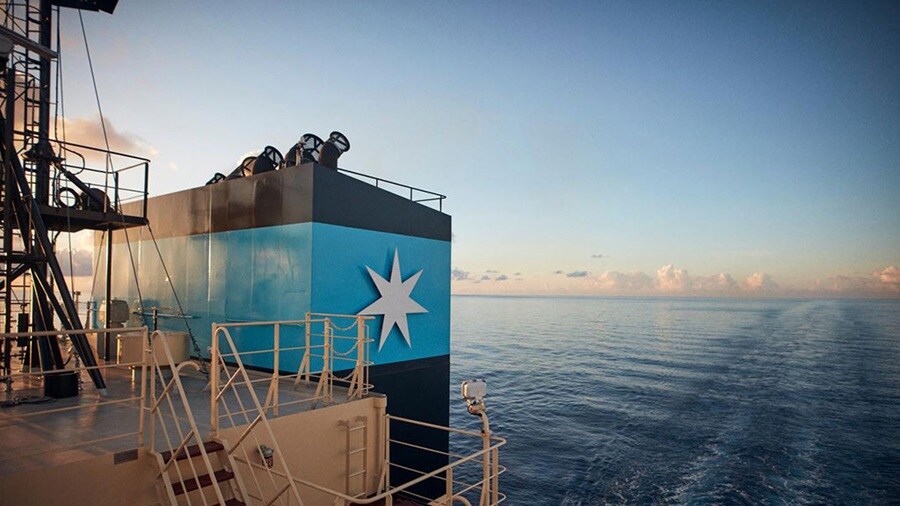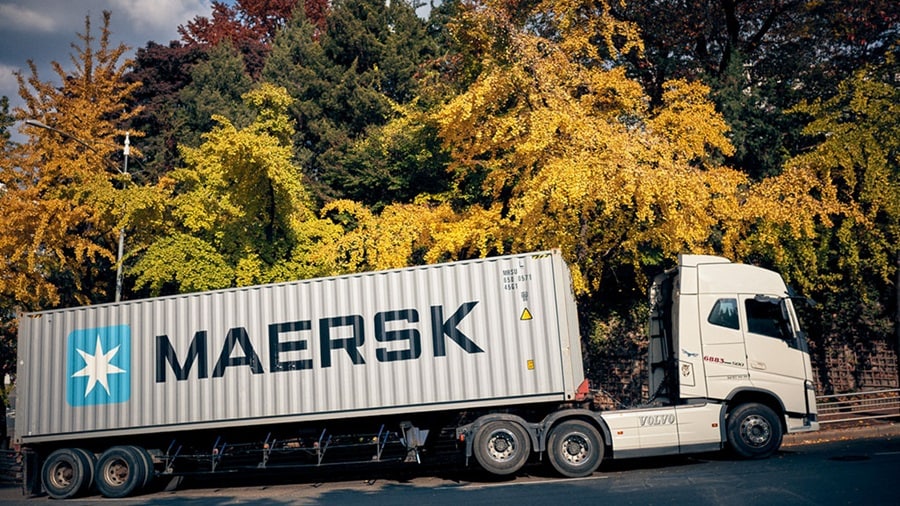Key Ports and Ocean Update
Our teams are keeping a close eye on the ongoing situation in Israel, but at this time port operations across Israel’s major terminals are continuing to function normally. We are currently not expecting a substantial impact at our key hubs in Ashdod and Haifa and bookings will therefore continue to be accepted to and from Israel.
If you have cargo already booked to or from Israel, we expect to facilitate it as normal. For more information and updates as things develop, please head to our advisory page.
In Poland, a combination of terminal constraints and decreased labour availability have led to critical yard density levels at the Port of Gdansk. To relieve pressure on the terminal, our teams are assessing options for diverting cargo flows to different routes and looking into alternative solutions to keep supply chains moving.

Customers with import cargo at the terminal are strongly urged to pick up their units latest five working days after discharge in order to support the terminal recovery. We will keep customers informed of the evolving situation at Gdansk on our dedicated advisory page.
Port of Ambarli, Turkey, continues to face high import and empty volume, resulting in high yard density that has made for high waiting times in one of the terminals. As the situation is expected to remain unchanged in the coming weeks, our teams are reviewing alternative options and structural solutions to ensure minimal delays for our customers. Should you be impacted by any contingency measures, we will reach out to you directly.
As mentioned in last month’s update, typhoons hitting the Asian continent in August have caused a ripple effect on service delays for sailings from Asia into Europe, mostly on the AE6 service. While delays coming into Europe could not be avoided, our teams have worked on a recovery plan for sailings out of Europe and expect no delay on the voyage back to Asia.
The European Union’s Emissions Trading System (ETS) will come into effect on 1 January 2024, and we want to ensure our customers are prepared for the new legislation’s arrival. Operators will be required to monitor and report CO2e emissions for shipping activities to, from, or between ports in the European Economic Area (EEA) - consisting of EU member states, Iceland, Liechtenstein, and Norway – and surrender allowances for every ton of CO2e they emit.
This will be passed on to customers in the form of a standalone surcharge known as ‘Emissions Surcharge’ and applied to all bookings on the voyage that will be subject to the EU ETS. ECO Delivery bookings, however, will not be subject to the ‘Emission Surcharge’. Find out more about EU ETS terms here.
Air Freight Update
A number of airlines have cancelled flights to and from Tel Aviv given the situation in Israel, which will have an impact on some of our air freight customers. If you are affected by these changes, a member of the team will reach out to you directly to discuss options for your cargo. We will continue to monitor air developments and keep customers informed of the latest information as soon as possible.

Elsewhere, recent data from IATA shows that monthly air cargo demand has actually grown year-over-year for the first time in 19 months. The measured global freight tonne-kilometers (CTKs) were still slightly below the pre-pandemic levels of 2019, but have recovered compared to previous years primarily due to a 30% increase in belly capacities. This surge can be attributed to many airlines ramping up their operations during the peak summer travel season.
For exports from Europe to Asia, capacity remains at nearly the same level as pre-Covid, despite restrictions on Russian airspace. According to World ACD, current numbers for global air freight tonnages and average rates in September indicate a mild seasonal strengthening of the market after the summer.
On a regional level, the transported tonnage between Europe and North America has increased by about 6% in both directions. In line with this trend on transatlantic routes, Maersk recently launched a new Air Freight import/export hub near Los Angeles International Airport (LAX). The facility provides access to the US West Coast and presents additional on-site storage capacity.
Similarly on the European side, Maersk expanded its network with the opening of a 41,000 sq ft air freight facility at Manchester Airport. Located in the north of the United Kingdom, this facility offers an efficient link between the UK, mainland Europe, and connectivity to Asia through the Maersk hub in Billund, Denmark.
Meanwhile, the European Union is increasingly focused on the progressive development of sustainable aviation fuel (SAF). In early September, the European Parliament passed an agreement that sets binding targets for European airlines to increase their use of SAF, and Reuters reports that fuel suppliers must ensure 2% of the fuel at EU airports is SAF by 2025. By 2030, this percentage is expected to increase to 6%.
Please click here to find helpful information about our air freight network and our services to and from Europe. To further streamline price searches and online bookings for our customers, from now on you will also find instant prices available.
Inland Update
The situation in Israel is being monitored closely by our teams, but both road and rail services remain fully operational in and around the country at this time. We will update customers with the latest information as soon as it becomes available.
To meet the European Union’s goal of cutting greenhouse gas (GHG) emissions by at least 55% by 2030, businesses across the continent are under pressure to decarbonise and inland supply chains are considered a key target for GHG emissions reductions.

To meet the demand for electric-powered transport options, Maersk has recently purchased 25 electric trucks in Germany. The trucks will be used for local deliveries in strategic locations, including the Bremerhaven gateway port, to create synergies and develop our existing network of low- to very-low GHG emission inland solutions for customers. Find out more about decreasing your inland supply chain’s GHG footprint.
In Germany, to accelerate the reduction of greenhouse gas emissions and reach climate reduction goals, the Federal Government is adding a new a road toll component that will be linked to the amount of CO2 produced by commercial vehicles.
As of 1 December, the new updated road toll will affect commercial freight traffic vehicles of 3.5 tonnes and up, while emission-free vehicles will be exempt from this charge until 31 December 2025. Find out more about what this charge means for cargo transport costs here.
Customs Update
Effective 30 September 2023, EU Regulation 2023/121 prohibits the import or purchase in the Union of iron and steel products from countries using Russian-origin inputs. This prohibition can be found in Council Regulation (EU) No 833/2014 Article 3g 1(d) and the latest amendment Council Regulation (EU) 2023/1214.
When importing to the European Union, you must now provide proof of non-Russian origin for these products. Ensure you have the required documentation to avoid delays, customs issues, or sanctions. A.P. Moller-Maersk is not responsible for providing or compiling this documentation to the authorities; it's the customer's obligation. For more information, please click here.

At the start of the month, the European Union entered a transitional phase of the Carbon Border Adjustment Mechanism (CBAM) that will require EU importers of cement, iron and steel, aluminium, fertilisers, electricity, and hydrogen, to report on the emissions of their imported products.
With CBAM, the European Union aims to prevent carbon leakage, which occurs when companies move their production to countries with less stringent climate policies or when EU products are replaced by more carbon-intensive imports. Find out more about how to ensure supply chain compliance with CBAM.
Ecommerce Update
Ecommerce revenue in 2023 is expected to grow compared to 2022 levels, but still end up below the record revenue of 2021. A recent report shows Western Europe remains the leader in terms of its share of ecommerce turnover in Europe, consistently contributing over 67% of total turnover, with Southern Europe catching up at 16%. Eastern Europe, while lagging slightly behind the other regions, provides ample opportunity for ecommerce businesses with its fast-growing digital economy.

Average ecommerce revenue per user is expected to see an upturn in 2023 and the coming years, while the return rate in ecommerce should fall to 8% after seeing a double-digit average in 2022. The fashion industry maintains the highest ecommerce return rate across all industries and is expected to contribute the lower return rate to virtual assistants, interactive size charts, AI advancements that support the shopping experience, and the changing returns policies. Find out more about how ecommerce businesses are able to continue offering free returns to their consumers.
Useful Links
To sign up for the Maersk Europe customer newsletter, click here and update your preferences when prompted via email.
Check the latest Maersk North America market update.
Check the latest Maersk Latin America market update.
无论您需要什么,我们都可以随时为您提供帮助
I agree to receive logistics related news and marketing updates by email, phone, messaging services (e.g. WhatsApp) and other digital platforms, including but not limited to social media (e.g., LinkedIn) from A. P. Moller-Maersk and its affiliated companies (see latest company overview). I understand that I can opt out of such Maersk communications at any time by clicking the unsubscribe link. To see how we use your personal data, please read our Privacy Notification.
By completing this form, you confirm that you agree to the use of your personal data by Maersk as described in our Privacy Notification.
